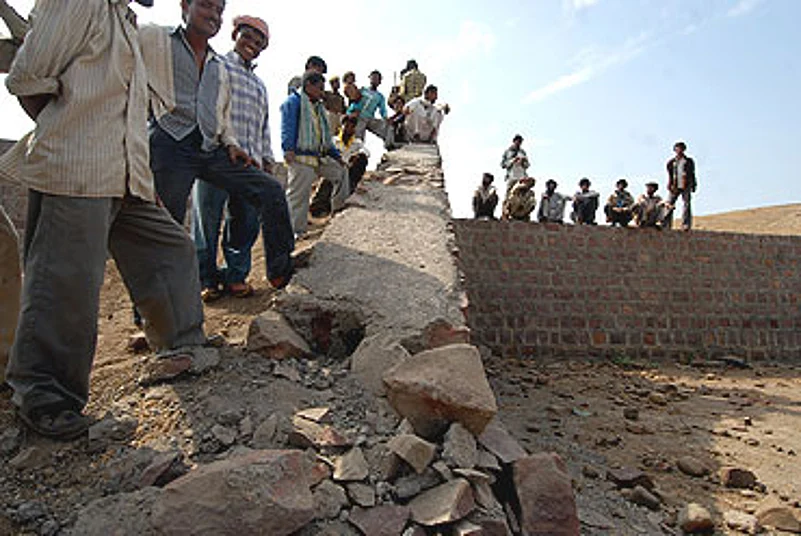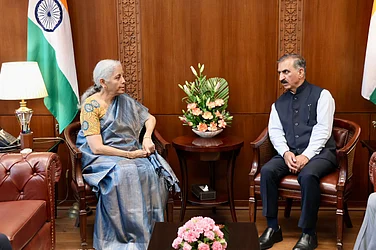- It makes officials accountable to the beneficiaries of the scheme
- Ensures that all records are easily available in the public domain
- Allows the beneficiaries to demand work or get unemployment allowance
- Monitors the growth of capital assets like water conservation projects
- Empowers women by giving them leadership roles as well as auditors of ongoing projects
***

In Orissa, where the social audit has yet to be taken up in a major way, Shaswat Mishra, an IAS officer in charge of the NREGs, proudly presents the management information system that has been put in place. "We are the only state that has online information available real time. In every village, the work covered as well as the time schedules, the payments, the veracity of the muster rolls and the number of people employed can be checked online from anywhere in the world," he told Outlook.
Points out Nikhil Dey, a member of the MKSS and a key figure behind the social audits: "During discussions, (deputy chairman of the Planning Commission) Montek Singh Alhuwalia asked us if corruption by fudging names in muster rolls could be prevented. But this process of empowerment, where ordinary people can ask for their records publicly, has ensured almost zero corruption."
If efforts are being made to check corruption, states must now implement the scheme to make it effective. Here is one success story. Meet Rohit Kumar, collector of Jalore district in Rajasthan and a staunch advocate of the employment scheme. "For the first time, people realise this is no longer a mere scheme but a legal right. That is a revolutionary step in terms of changing a mindset and making people without any rights before this that they too matter," says Kumar. Among other things, he has handed over the running of the scheme to women. This ensured more transparency and empowered the women who are running the scheme successfully.
Kumar quickly rattles out statistics to make a case for NREGs. "In earlier schemes, we could spend only Rs 30 crore to 40 crore for the entire district. Under NREGs we are looking at Rs 250 crore. Compare this with the Rs 80 lakh that each MLA gets for their constituency spread over 40- 50 panchayats. It works to about Rs 2 lakh per panchayat. In the case of the NREGs, we have Rs 1.21 crore per gram sabha per year."
Economist Jean Dreze, a member of the Employment Guarantee Council, is dismissive of those who claim that the NREGs is a colossal waste of public funds. "Be it check-dams, rural roads, water harvesting structures, schools...all these are a part of the assets that are being created. A back-of-the-envelope calculation will show the returns are better than most industrial projects." His claims are backed by figures. Last year has seen over 29,000 works for flood control, 3,47,515 water-harvesting projects, 1,13,294 drought proofing efforts and 57,557 micro-irrigation works. NREGs allocations has also been used for 1,13,294 afforestation schemes and more than 20 lakh projects have been undertaken to build rural roads. "If you look at the money lost by giving a ten-year tax holiday to IT firms and then compare it with what NREGs has built in just two years, you will see its benefits," says a government official.
The social audit not only exposes corruption but it also empowers the people by informing them of their rights—as a World Bank study of audits in Andhra Pradesh shows. The facts are revealing. Only 39 per cent of people knew about NREGs, but after the first audit it jumped to 98 per cent. Earlier, 31 per cent were aware that the Act guarantees 100 days of work. Now, 99 per cent know this.
With the economy growing there is much talk about the need for a trickledown effect. Says a PMO source: "The PM is backing the scheme since 60 per cent of our population depends on agriculture, a sector that is witnessing largescale unemployment." Clearly, if the NREGA scheme is implemented and audited, it could ensure that rural India also gets its share of the shine.


















